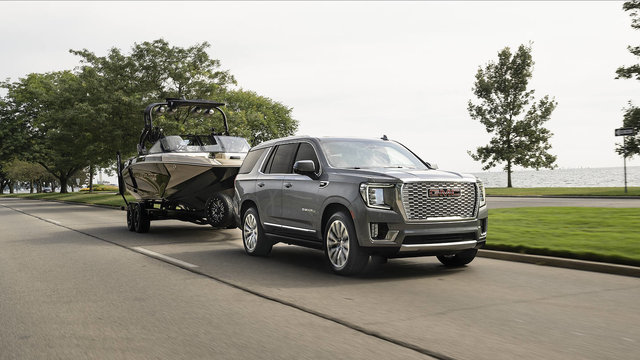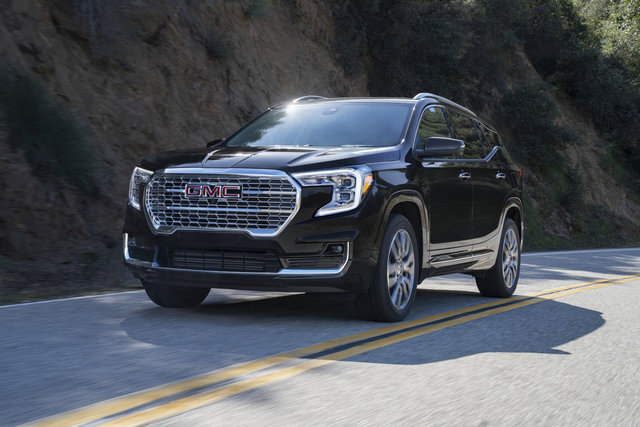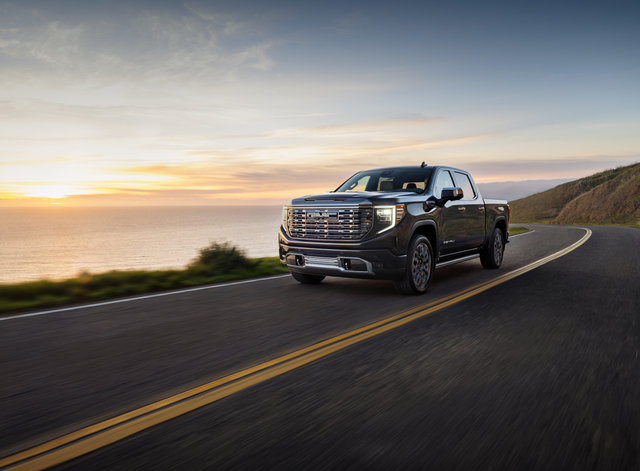In the competitive world of compact SUVs, the 2024 GMC Terrain and the 2024 Mitsubishi Eclipse Cross stand out as prominent contenders. However, a closer examination reveals that the Terrain offers some distinct advantages that set it apart. This article delves into the specifics, comparing the two models in terms of engine performance, fuel efficiency, interior and cargo space. A More Powerful...

The GMC Yukon offers a great combination of size, power options, a standard 10-speed transmission, and more for the 2021 model year. Here, we compare it to the BMW X7.
The Yukon has an entry MSRP of $57,998, while the X7 series starts around $97,500. You could buy a Yukon and another GMC truck at the X7's price, and the value that the Yukon offers is difficult to set aside.
The GMC Yukon has a better power and towing capabilities
Both vehicles are very different when it comes to engine choices, but the Yukon offers more practical options for everyday driving at a much lower cost.
The Yukon offers a six-cylinder diesel and two gasoline eight-cylinder engines that range from 277 to 420 horsepower. Torque for these engines starts at 383 lb-ft and ranges to 460 lb-ft, which is very responsive for this class of vehicle.
The X7 xDrive40i is the more practical model in the BMW series with a 335-horsepower rating, but there is a catch. It has an entry price close to $100,000. Many who are considering a Yukon will be hard pressed to justify the high cost for power that's in the middle part of the Yukon's range. If you want the 523-horsepower eight cylinder, expect to pay at least $125,000.
The Yukon has a standard 10-speed automatic transmission and can tow up to 8,400 lb. The X7 only offers an eight-speed, and it’s towing capacity is topped off at 5,950 lb.
The GMC Yukon is expansive and one of the roomiest SUVs available
The Yukon beats the X7 in all facets of passenger and cargo volume. The Yukon features seating for up to nine passengers, whereas the X7 publishes a maximum of seven. The Yukon offers more headroom, nearly 120 mm of additional legroom, and 150 more mm of shoulder room than the X7. And that's just the beginning. The Yukon also has more second- and third-row legroom and shoulder room, and more third-row headroom.
The available cargo volume in the Yukon overtakes the X7 by over 900 litres. When you need to load up, the Yukon offers up to 3,480 litres of volume behind the front seats, 2,056 litres behind the second row, and over 700 litres behind the third row, and that’s only with the Yukon variant. The Yukon XL is even roomier with up to 4 098 L of available space. The X7 is not competitive with the Yukon in this category.
You can shop for your car online with us. Our representatives are waiting for your call and can answer all your questions.
Other Articles That May Interest You
General Motors takes a significant step forward in enhancing the safety and connectivity of its vehicles. Starting with the 2025 models, GM will be integrating OnStar's most in-demand features as standard offerings across the Chevrolet, Buick, GMC, and Cadillac brands. This move is set to redefine the industry's standards for vehicle safety and technological integration, bringing a new level of...
The full-size truck market is fiercely competitive, with the GMC Sierra 2024 stepping into battle against the Toyota Tundra 2024. Let's take a moment to compare these models on several crucial aspects: mechanical performance, towing capacity, interior finishes, and available passenger space. Mechanical Power Comparison The GMC Sierra commands the scene in 2024 with mechanical offerings that...



